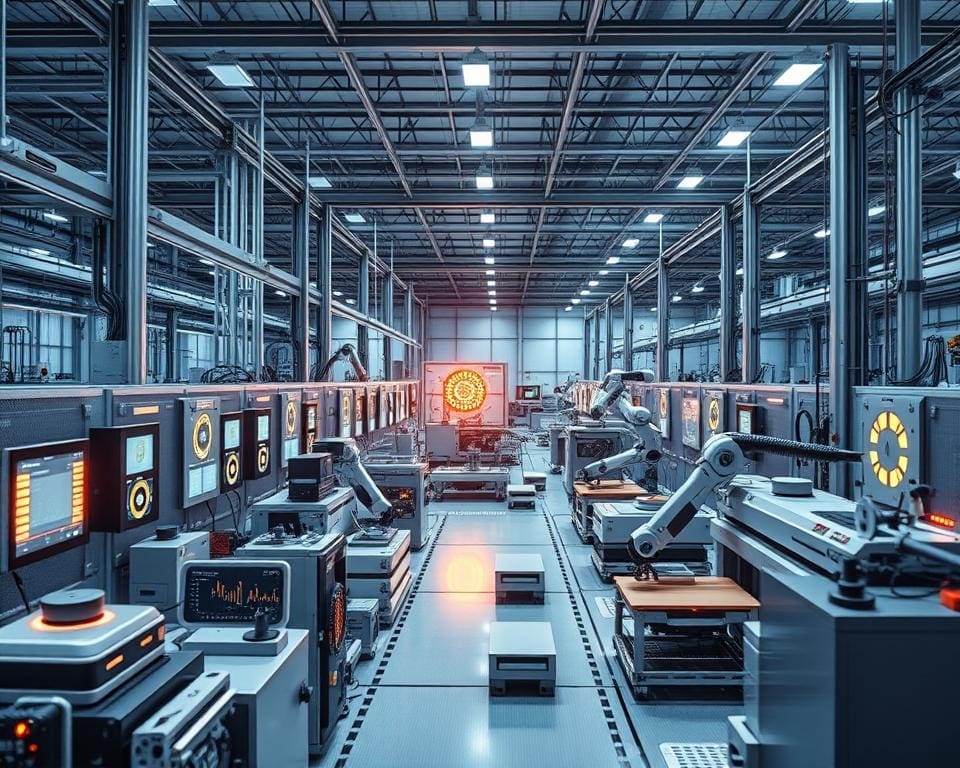The introduction of the Internet of Things (IoT) in the manufacturing sector is reshaping processes and creating an industrial landscape rife with opportunities. According to a report by McKinsey, the integration of IoT technologies can lead to a 20-25% increase in productivity in manufacturing. These technologies enable real-time monitoring of manufacturing processes, leading to enhanced decision-making and efficiency.
Furthermore, IoT facilitates greater connectivity between devices, allowing for seamless communication across the production line, minimising errors, and optimising resource allocation. The transformation driven by IoT extends beyond mere automation; it embodies a paradigm shift towards smarter, data-informed operations that can adapt to dynamic market demands. As we delve deeper into the IoT manufacturing revolution, it becomes clear that the IoT impact on manufacturing is monumental, unlocking innovative solutions that propel growth and competitiveness in the global market.
The Impact of IoT on Manufacturing Efficiency
The integration of IoT technologies serves as a catalyst for remarkable advancements in manufacturing efficiency. With the rise of Smart manufacturing with IoT, businesses now leverage sophisticated data and analytics to optimise their operations. This transformation enhances competitive advantages, ultimately reshaping the landscape of the manufacturing sector.
Enhancing Operational Performance
Real-time data analytics provided by IoT devices revolutionise operational performance. Companies can harness these insights to make informed decisions that bolster production quality and speed. For instance, Siemens utilises intelligent sensors that collect vital data on machinery performance. This information allows for timely adjustments, ensuring that production processes operate at peak efficiency.
Reducing Downtime Through Predictive Maintenance
Predictive maintenance has fundamentally altered how companies manage equipment reliability. By employing IoT technologies for manufacturing efficiency, organisations can anticipate equipment failures before they manifest. This proactive approach enables reductions in downtime by up to 50%, translating into significant cost savings and resource optimisation, as highlighted by industry leaders like IBM.
Streamlining Supply Chain Management
IoT solutions allow for the real-time tracking of inventory and materials, greatly improving supply chain management. By facilitating visibility across the supply chain, manufacturers can optimise stock levels and minimise waste. Such agility ensures responsiveness to fluctuations in consumer demand, fortifying the overall efficiency of manufacturing operations.

Internet of Things and Manufacturing Innovation
The convergence of IoT and manufacturing heralds a new era of innovation, positioning the industry to harness the full potential of smart manufacturing solutions. Embracing advanced robotics and automation, manufacturers are enhancing production capabilities while simultaneously increasing operational flexibility. A striking example can be found in GE’s Digital Wind Farm initiative. By utilising IoT-enabled turbines that communicate performance metrics, GE facilitates customised optimisation strategies, exemplifying the transformative impact of the IoT manufacturing revolution.
Smart Manufacturing Solutions
The adoption of smart manufacturing solutions is setting the stage for a more collaborative environment. Here, machines, devices, and human operators interact seamlessly, which enhances visibility throughout the production process. As businesses look to refine their processes, the integration of IoT technologies becomes crucial. It empowers manufacturers to swiftly respond to fluctuations in demand, ensuring they remain agile and competitive. Such alignment not only boosts efficiency but also underpins the essence of the Internet of Things and manufacturing innovation.
Integration of IoT Technologies
As manufacturers venture deeper into the realm of IoT, the integration of machine learning and artificial intelligence emerges as a powerful catalyst for enhancing predictive analytics and operational insights. This progressive approach drives a culture of continuous improvement and innovation within manufacturing practices. By actively engaging with these technological advancements, companies are not only adapting but thriving amidst the challenges of today’s market landscape, demonstrating the vital role of The Role of IoT in Revolutionizing Manufacturing. The potential for growth and innovation remains boundless as the sector embraces these transformative capabilities.








